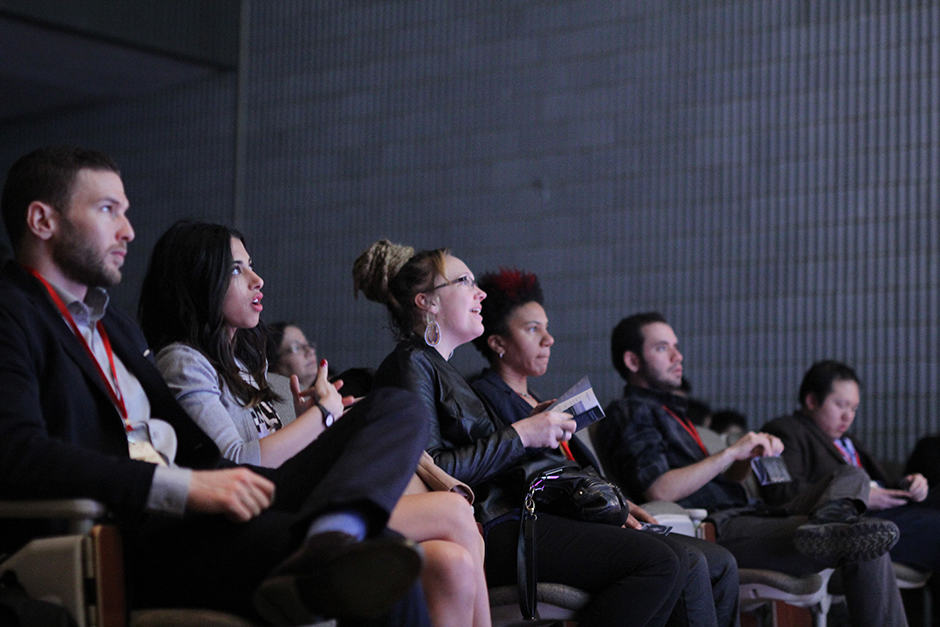While many University of Toronto students were catching up on sleep or getting ready to face another day of studies, a crowd of around 500 quietly filled the Medical Sciences auditorium on March 15. It was one of the first bright spring days, and the room hummed with anxious excitement.
The occasion was the third annual TEDxUofT conference, an offshoot of the now-famous TED series. TEDx gives independent organizers a chance to screen TED videos, as well as organize live presentations from local scholars and creative minds.
TEDxUofT is not the same as TEDxToronto, which occurred for the sixth year in a row last October at Koerner Hall. Both events are entirely volunteer-run.
The conference, themed around “A Constellation of Insights,” addressed a range of topics.
The first speaker was U of T instructor Michael Reid, well known by students familiar with introductory astronomy courses.
Reid said that the way science is taught is fundamentally wrong. He believes in teaching that everyone can “do” science, just as everyone is taught they have the ability to read.
He compared the Canadian literacy rate to the scientific literacy rate: 99 per cent compared to 42 per cent. “If the literacy rate were 42 per cent, it would be considered a crisis,” Reid said,
Avis Glaze spoke about the need for access to technology in the digital age, saying that schools “need to open up for those who don’t have access to technology.”
She highlighted the struggle for minority groups, saying it is necessary to make sure those students have the means to succeed.
Glaze also emphasized character development as part of a curriculum. “To educate a person in mind and not in morals is to create a menace to society,” she said. “Empathy can be taught.”
PhD student Samantha Joel spoke about the way that modern-day relationships are thought of as consumer purchases. As with other purchases, people are often under the impression that they would choose the best possible option for themselves.
“We think of ourselves as consumers, even in dating… and we assume the decisions we make are all about ourselves,” Joel said.
Her research points to the opposite of what we often believe to be true. As people we “inherently, fundamentally care about other people’s needs. We are not self-interested,” Joel added.
One of the final talks of the day was by Scot Wortley and Akwasi Owusu-Bempah, who discussed how crime narratives differ by race, including perspectives of youth and police in Toronto.
Wortley explained how, as a white man, his privilege lies in that if another white man commits a crime, it will not affect him at all. Both presenters explained that the biggest predictors of criminal activity are perceptions of social justice.
They quoted a young, Canadian black man they had interviewed in their work, who said simply, “This is not my country.”
They finished their talk with an urge for Canadians to stop complacency. “Racism is softer, gentler, perhaps more polite here, but just as much of a problem,” the presenters said.


